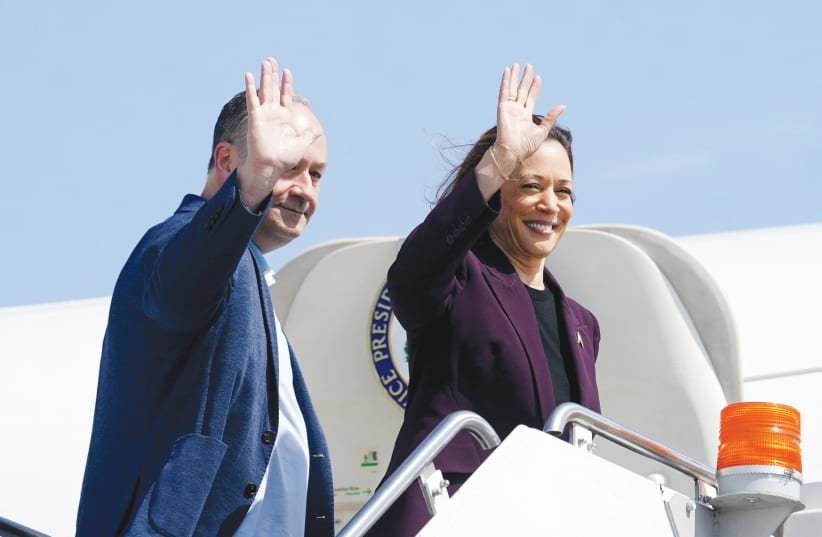Introduction to the Press Conference
In a world where political alliances can shift like sand, the recent press conference between President Biden Netanyahu captured global attention. As two key players in international politics came together, their discussions held the promise of change and continuity for U.
S.-Israel relations. What transpired behind closed doors? And how do these negotiations impact not only each nation but also the broader geopolitical landscape? Let’s delve into the significant developments that emerged from this high-profile meeting.
The Relationship between the US and Israel
The relationship between the US and Israel is a complex tapestry woven with historical, political, and cultural threads. Since Israel’s founding in 1948, America has been one of its staunchest allies.
This partnership has deep roots, often characterized by shared democratic values and mutual strategic interests. The two nations have collaborated on various fronts including military aid, intelligence sharing, and technology development.
Cultural ties also play a significant role; there’s a strong bond among American Jews who support Israel passionately. This connection influences public opinion and policy-making in Washington.
However, this alliance isn’t without its challenges. Issues such as the Israeli-Palestinian conflict often test their relationship dynamics. Political shifts within either country can lead to a re-evaluation of policies that affect their long-standing friendship.
Through it all, both nations continue to navigate these complexities while striving for stability in a tumultuous region.
Changes Made by Holding the Press Conference
The recent press conference between Biden and Netanyahu marked a significant shift in the US-Israel dialogue. Their public engagement underscored a renewed commitment to address pressing issues, particularly around security and regional stability.
One notable change was the transparent communication style adopted by both leaders. This openness aimed to reassure allies and adversaries alike that the partnership remains robust.
Additionally, both nations emphasized collaboration on defense technology. By highlighting joint military initiatives, they signaled an intention to enhance Israel’s security capabilities amid rising tensions in the region.
Economic discussions also took center stage at this event. The two leaders explored avenues for increasing trade partnerships, which could lead to economic growth for both countries.
Such changes reflect not only their immediate priorities but also a broader strategy of aligning interests during uncertain times in global politics.
Agreements Reached between Biden and Netanyahu
During a recent press conference, Biden and Netanyahu outlined several key agreements aimed at strengthening bilateral ties. One major focus was enhancing military cooperation between the two nations. This includes increased funding for defense initiatives in Israel.
The leaders also discussed expanding economic collaboration. Initiatives to foster trade and innovation are on the table, reflecting a desire to boost mutual prosperity.
Another critical area of agreement is regional security. Both leaders emphasized their commitment to countering threats from neighboring adversaries. This strategic partnership aims to promote stability throughout the Middle East.
Additionally, there’s talk about advancing diplomatic efforts concerning peace negotiations with Palestinian authorities. The intention is to create an environment conducive for dialogue, despite ongoing challenges.
These discussions signal a renewed commitment toward long-term cooperation and understanding between Biden and Netanyahu’s administrations.
Impact of These Agreements on the US-Israel Relationship
The agreements reached during the Biden-Netanyahu press conference marked a significant shift in US-Israel relations. They signal a renewed commitment to mutual security and economic cooperation.
This partnership is expected to bolster defense initiatives, enhancing Israel’s military capabilities against regional threats. As both nations collaborate on intelligence sharing and joint exercises, their strategic alliance strengthens.
Moreover, these agreements may open doors for increased trade investments between the two countries. Economic ties can deepen collaboration across sectors such as technology and innovation.
Culturally, this engagement could foster greater understanding among citizens of both nations. People-to-people connections often lead to lasting diplomatic ties that transcend political agendas.
However, it’s essential to monitor how these changes resonate within broader geopolitical contexts. The implications extend beyond bilateral relationships into global dynamics involving neighboring countries and international organizations.
Criticisms and Controversies Surrounding the Press Conference
The press conference between Biden and Netanyahu was not without its critics. Many observers questioned the timing of the meeting, especially amidst ongoing tensions in the region. Some argued that such high-profile engagements could inadvertently legitimize controversial policies.
Human rights advocates voiced concern over Israel’s actions in Palestinian territories. They felt that the US. support might embolden further military operations, overlooking humanitarian crises.
Additionally, some politicians within the United States expressed frustration with what they saw as a lack of accountability for Israeli policies. They called for more balanced discussions regarding peace initiatives.
Social media erupted with mixed reactions, highlighting deep divides among supporters and detractors of both leaders’ stances on critical issues like settlement expansion and military aid. The complexities surrounding this relationship make it difficult to find common ground amid rising discontent from various factions globally.
Conclusion: Future Prospects for US.-Israel Relations
The recent press conference between Biden and Netanyahu marks a significant moment in U.
S.-Israel relations. As both leaders outlined their shared goals and commitments, it became clear that the dynamics of this long-standing partnership are evolving.
Moving forward, there is potential for deeper cooperation on security issues and regional stability. The agreements reached during the press briefing suggest an intent to strengthen military collaboration while addressing pressing challenges like Iran’s nuclear ambitions.
However, surrounding controversies may cast shadows over these advancements. The reactions from various political factions within both nations will play a crucial role in shaping future interactions. Observers will be keen to see how public sentiment aligns with the diplomatic objectives laid out by Biden Netanyahu.
As geopolitical landscapes shift, the relationship between these two allies remains paramount not just for them but also for global peace efforts. How they navigate upcoming challenges could redefine their alliance in unprecedented ways.









